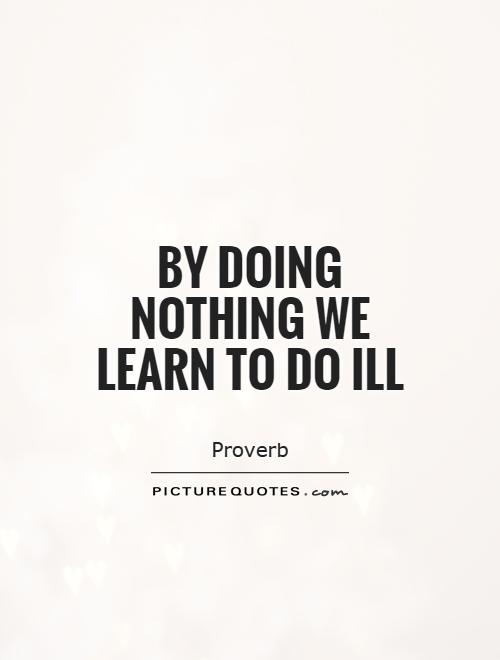By doing nothing we learn to do ill

By doing nothing we learn to do ill
The proverb "By doing nothing we learn to do ill" emphasizes the importance of taking action and being proactive in order to avoid negative consequences. This proverb suggests that when we are idle or passive, we are more likely to engage in harmful or negative behaviors. In other words, if we do not actively work towards positive goals or make an effort to improve ourselves, we may fall into bad habits or make poor choices.One interpretation of this proverb is that when we are not actively engaged in productive activities, we may become bored or restless, leading us to seek out negative or harmful behaviors as a way to pass the time. For example, if someone spends all day lounging on the couch watching TV instead of pursuing their goals or engaging in meaningful activities, they may be more likely to engage in unhealthy habits such as overeating or substance abuse.
Furthermore, the proverb can also be interpreted as a warning against complacency and inaction. When we do not take action to improve ourselves or our circumstances, we may become stagnant and fall into a cycle of negative behaviors. By failing to actively work towards our goals and make positive changes in our lives, we may inadvertently learn to do ill by default.
On the other hand, when we are proactive and take action to better ourselves and our situations, we are less likely to engage in harmful behaviors. By staying busy and focused on positive goals, we are less likely to fall into negative habits or make poor choices. In this sense, the proverb serves as a reminder of the importance of taking responsibility for our actions and actively working towards positive outcomes.












 Friendship Quotes
Friendship Quotes Love Quotes
Love Quotes Life Quotes
Life Quotes Funny Quotes
Funny Quotes Motivational Quotes
Motivational Quotes Inspirational Quotes
Inspirational Quotes